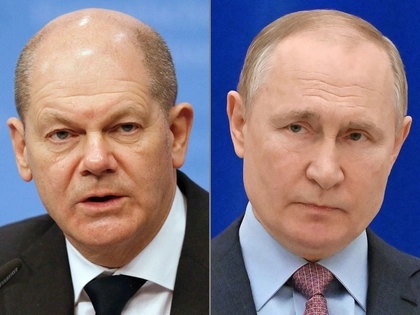The opening ceremony of the 2024 Summer Olympics takes place in Paris on Friday. Europe's commentators survey the city and the event, in which international conflicts and tough security measures seem to be the dominant themes so far.
Like in a science fiction film
JOIN US ON TELEGRAM
Follow our coverage of the war on the @Kyivpost_official.
The Greek weekly newspaper Documento describes the atmosphere in Paris:
“Visitors arriving in Paris without knowing what to expect have the feeling they are entering the set of a futuristic fantasy film. Helicopters with spotlights circle the sky of the City of Lights, while the historic center is almost completely closed for security reasons due to the opening ceremony of the Olympic Games. ... Access to the Trocadero and the banks of the Seine around the Eiffel Tower is restricted to accredited persons and residents of the neighborhood. But even they have to report to the police in their respective arrondissement, provide a document proving that they live nearby and receive a QR code on their mobile phone in order to pass through the blockade.”
An accumulation of conflicts
In addition to the participation of Russian athletes, Denmark’s Jyllands-Posten sees a number of other problems:
“The IOC's erroneous conclusions also affect Afghanistan. ... Three of the six athletes competing are women who live in exile because the Taliban has banned women from playing sports. ... The Israel-Hamas conflict has already become part of the Games. ... On top of all this there are enormous security measures, suspicions of fraud, threats of strikes by transport workers and disputes over the use of public funds. All this outlines the contours of an Olympic Games in which both French domestic politics and international conflicts have become dominant themes.”

European Troops in Ukraine Could Guarantee Future Peace Deal: Kyiv Official
Police at their limit
The UK’s The Times voices doubts about whether the French police, who have a reputation for being unfriendly, will be capable of changing their ways:
“In a handwritten letter to the 45,000 police officers who will be on duty during the most intensely-guarded moments of the Olympics, France's interior minister, Gérald Darmanin, has urged the force to be 'benevolent, friendly and professional'. As anyone who has ever encountered French police will know, such an injunction is sure to test its officers to their very limit. More accustomed to treating relations with the public as a contact sport, France's enforcers are being encouraged to set aside their tear gas canisters, water cannon and rubber bullets in favor of a friendly smile and generally helpful demeanor.”
On a par with the best?
With the Games, France can reinforce its soft power, communications expert Véronique Chabourine explains in France’s La Tribune:
“The success of the Paris 2024 Olympic Games will be measured by various indicators, including above all the economic impact, environmental sustainability, security and level of satisfaction of participants and spectators. ... If it can master these challenges, France will be able to compete with the UK and China, which occupy second and third place in the global soft power rankings after the US and position itself on a par with them in terms of the organization and impact of the Olympic Games.”
A real stress test for the growing city
For the Irish Examiner it is by no means certain that the Olympics will be a success for Paris:
“Paris faces the test this week of launching the Olympic Games safely and affordably at a time of war, political polarization and social unrest. ... The real challenge will begin once the athletes have packed up and gone home. ... Paris must complete its gold-medal transformation into something greater: a megalopolis that binds the hipsters, financiers and flaneurs of historic, densely populated Paris to the sprawling regional economy where many Olympic events will actually take place.”
See the original here.
You can also highlight the text and press Ctrl + Enter






